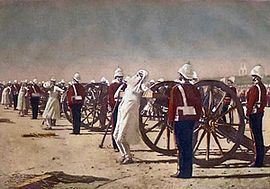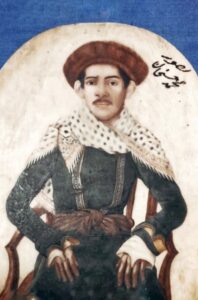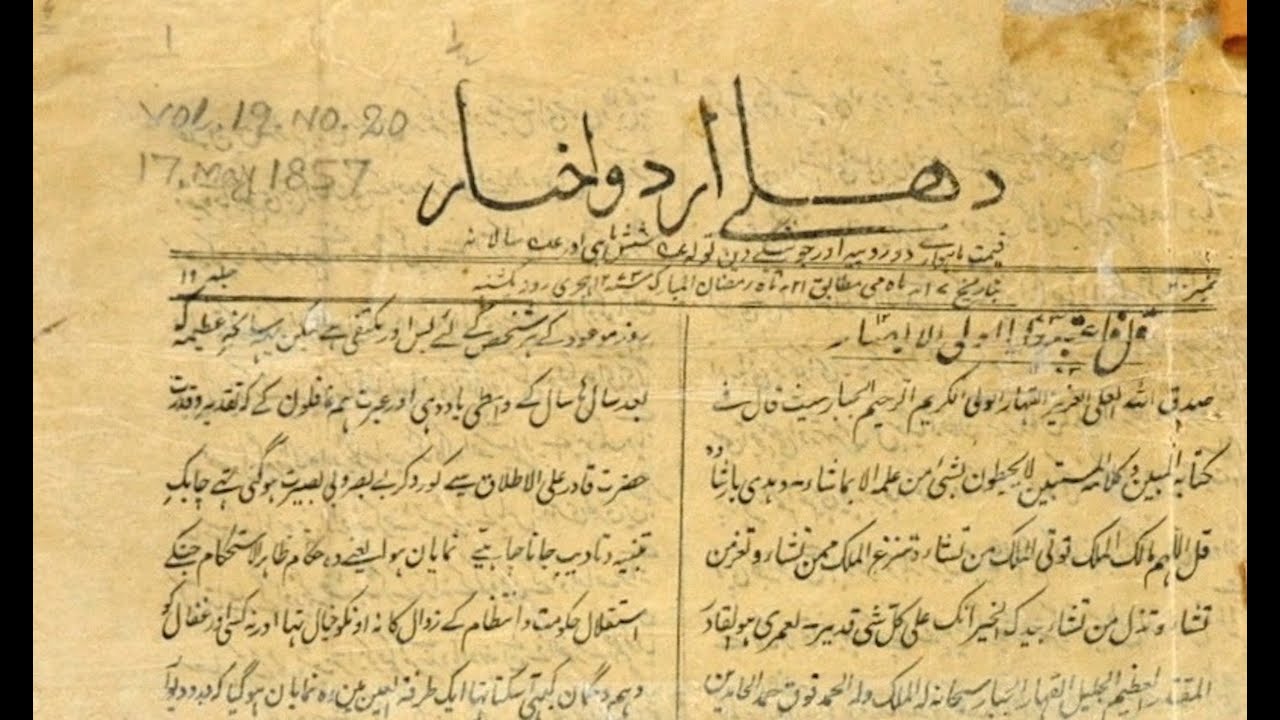“Soon after the Press Act was amended in 1835, he established his own press. Thus began the publication of Dehli Urdu Akhbar”, informs Nawal Rai, a newspaper archivist. “Before he started the weekly, Moulvi Muhammad Baqar taught at Delhi College and served the East India Company for a short period of time”.

The new legislation, popularly called the Metcalfe Act, allowed the setting up of newspapers provided the printer/publisher gave details of the premises of a publication. This ‘liberalisation’ resulted in a rapid expansion of newspapers, with consequences that the colonial power did not expect.
Rushaid Jaffery, an independent researcher and student of history, stated in a conversation with Patriot that in his opinion Maulvi Muhammad Baqar was a true revolutionary. “He was constantly searching for an opportunity to serve his watan (homeland). That’s why, as soon as he got a chance, he established a printing press at his own home, quite near to the place where stands the Panja Shareef in Delhi’s Kashmiri Gate”.
Speaking about Baqar’s personality, Jaffery stated that he was a man of multiple qualities. “He was well versed in Arabic, Persian, Urdu and in English as well. From the beginning of his education in the lap of his father Mohd Akbar to the years in Delhi College, where he became a professor of Persian.”
The exact date when the paper was launched is not established, continues Jaffery. Some sources say it started publication in 1835. But due to the lack of evidence and surviving editions, 1837 is accepted as the starting year.
However, there is no doubt that Delhi Urdu Akhbar was the first of its own kind in the city of Delhi. It remained in circulation for 22 years and stopped only with the execution of Maulvi Muhammad Baqar in 1857.
Brutal execution
Popularly remembered as the old man tied to a cannon, as represented in a painting by the Russian Artist Vasily Vireshchagin that appeared in 1884, Maulvi Muhammad Baqar was the first journalist in the history of the Indian freedom struggle to be executed by the British for his role in the anti-colonial struggle.
Digging up the details, Jaffery recalls that he was charged with participation in the revolt and propagating anti-British sentiments. “Maulvi Muhammad Baqar was arrested on 14 September and then, without a proper trial, he was tied to the mouth of a cannon on the very next day”.
“His death wasn’t merely because of his pro-rebel attitude, or of the fact that he renamed the Dehli Urdu Akbhar as Akhbar-uz-Zafar, attributing it to the Mughal emperor Bahadur Shah Zafar (the chosen leader of the revolt of 1857). A major reason was that he actively propagated the idea of secularism and co-existence which the British feared”, states Jaffery.
His execution, which was carried out by Major Hudson, was of such a great impact that the tale was passed on from one generation to the other for decades. “The painting was made in the mid-1880s”, he says, referring to Vasily’s painting.
Sense of duty
Syed Hassan, a senior journalist, told Patriot that what Muhammad Baqar did through his newspaper was his duty as a journalist, and he was religious in that matter. “It is the journalistic duty to question the authorities and the people in power. Baqar questioned the British government through his paper and inculcated the idea of dissent among the common people of Delhi”, he stated.
The weekly openly supported the rebels but at the same time condemned some of their nefarious activities. “Baqar knew that he would be executed by the British, but he continued to propagate the idea of revolution and dissent, which many of the journalists and media houses in our times are afraid to do”, he concluded.
Hassan also stated that in his opinion, the local reporters or journalists covering remote areas with depth are the true heirs of Muhammad Baqar’s legacy.
Wide outreach
Dehli Urdu Akhbar played a key role in popularising the revolt and mobilising the masses in northern India. Faizan Raza, Area Representative of the British Association for Cemeteries in South Asia, stated that the newspaper was the prime carrier of news related to happenings in Delhi and decisions taken by Mughal emperor Bahadur Shah Zafar and other leaders of the rebellion.
“Directly or indirectly, the Dehli Urdu Akhbar was the sole carrier of the information related to the revolt”, he stated.
“Not to be confused by the term Delhi in its name, the paper had separate columns carrying the news of other areas such as Patiala, Amroha and Hazaribagh as well. It is quite understandable that the Dehli Urdu Akhbar was well connected and was the most trusted among the revolutionaries”, added Raza.

Narrating a tale about its popularity in Bihar, Faizan stated that it was widely believed that Nawab Syed Mohammad Hassan Khan Rashki of Doolighat in Azeemabad — a renowned poet, author and educationist — was the editor. “This was completely baseless but mentioned in a number of books with the Nawab Saheb’s name.”
“The newspaper was so popular and widely circulated that the Bihari rebels thought that it was published in Bihar as well, and thus associated it with a noted educationist who used to publish a lot of books and magazines, and was also a Nawab of Azeemabad”, he concluded..
Be that as it may, in 1908 the British imposed strict censorship on all kinds of publications in an effort to curb the feeling of nationalism which was growing with each passing year, provoking the killing of British judges and other officials.
Send comments to feedback@thepatriot.in
For more stories that cover the ongoings of Delhi NCR, follow us on:
Instagram: instagram.com/thepatriot_in/
Twitter: twitter.com/Patriot_Delhi
Facebook: facebook.com/Thepatriotnewsindia





